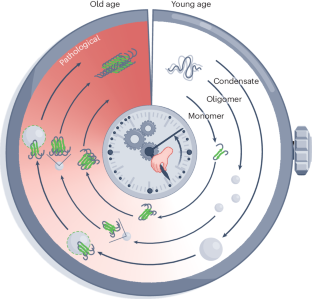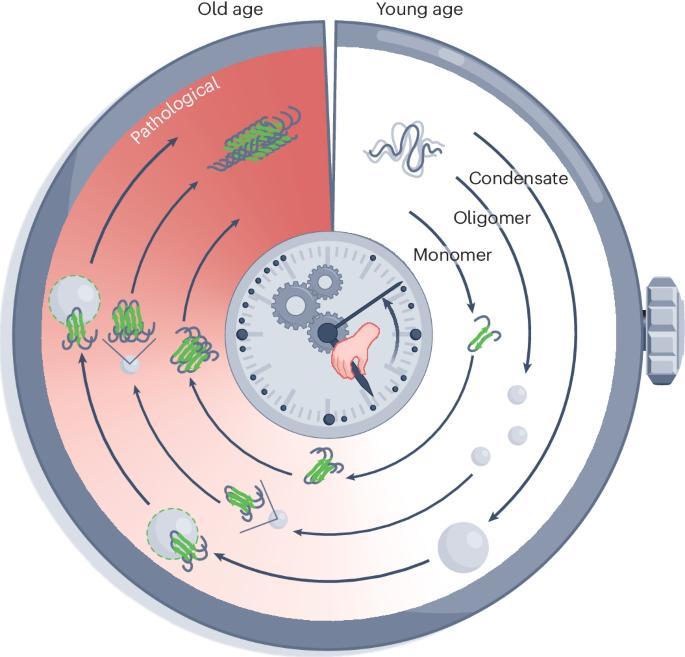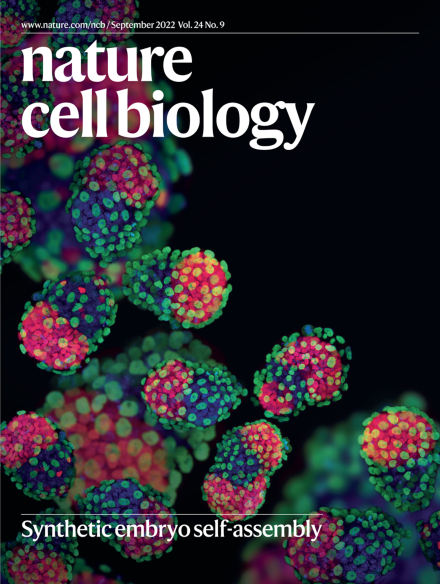Adding intrinsically disordered proteins to biological ageing clocks
IF 19.1
1区 生物学
Q1 CELL BIOLOGY
引用次数: 0
Abstract
Research into how the young and old differ, and which biomarkers reflect the diverse biological processes underlying ageing, is a current and fast-growing field. Biological clocks provide a means to evaluate whether a molecule, cell, tissue or even an entire organism is old or young. Here we summarize established and emerging molecular clocks as timepieces. We emphasize that intrinsically disordered proteins (IDPs) tend to transform into a β-sheet-rich aggregated state and accumulate in non-dividing or slowly dividing cells as they age. We hypothesize that understanding these protein-based molecular ageing mechanisms might provide a conceptual pathway to determining a cell’s health age by probing the aggregation state of IDPs, which we term the IDP clock. Biological clocks can be used to evaluate the age of a cell or organisms. This Perspective proposes the concept of an intrinsically disordered protein (IDP) clock, whereby the aggregation state of an IDP encodes for a biological ageing signature.


在生物老化时钟中加入本征无序蛋白
研究年轻人和老年人有何不同,以及哪些生物标志物反映了老化背后的各种生物过程,是当前一个快速发展的领域。生物钟提供了一种评估分子、细胞、组织甚至整个生物体是老还是年轻的方法。在此,我们总结了作为计时器的成熟和新兴分子钟。我们强调,随着年龄的增长,内在无序蛋白(IDPs)往往会转变为富含β片的聚集状态,并在不分裂或缓慢分裂的细胞中积累。我们假设,了解这些基于蛋白质的分子老化机制可能会提供一种概念性途径,通过探测 IDPs 的聚集状态(我们称之为 IDP 时钟)来确定细胞的健康年龄。
本文章由计算机程序翻译,如有差异,请以英文原文为准。
求助全文
约1分钟内获得全文
求助全文
来源期刊

Nature Cell Biology
生物-细胞生物学
CiteScore
28.40
自引率
0.90%
发文量
219
审稿时长
3 months
期刊介绍:
Nature Cell Biology, a prestigious journal, upholds a commitment to publishing papers of the highest quality across all areas of cell biology, with a particular focus on elucidating mechanisms underlying fundamental cell biological processes. The journal's broad scope encompasses various areas of interest, including but not limited to:
-Autophagy
-Cancer biology
-Cell adhesion and migration
-Cell cycle and growth
-Cell death
-Chromatin and epigenetics
-Cytoskeletal dynamics
-Developmental biology
-DNA replication and repair
-Mechanisms of human disease
-Mechanobiology
-Membrane traffic and dynamics
-Metabolism
-Nuclear organization and dynamics
-Organelle biology
-Proteolysis and quality control
-RNA biology
-Signal transduction
-Stem cell biology
 求助内容:
求助内容: 应助结果提醒方式:
应助结果提醒方式:


